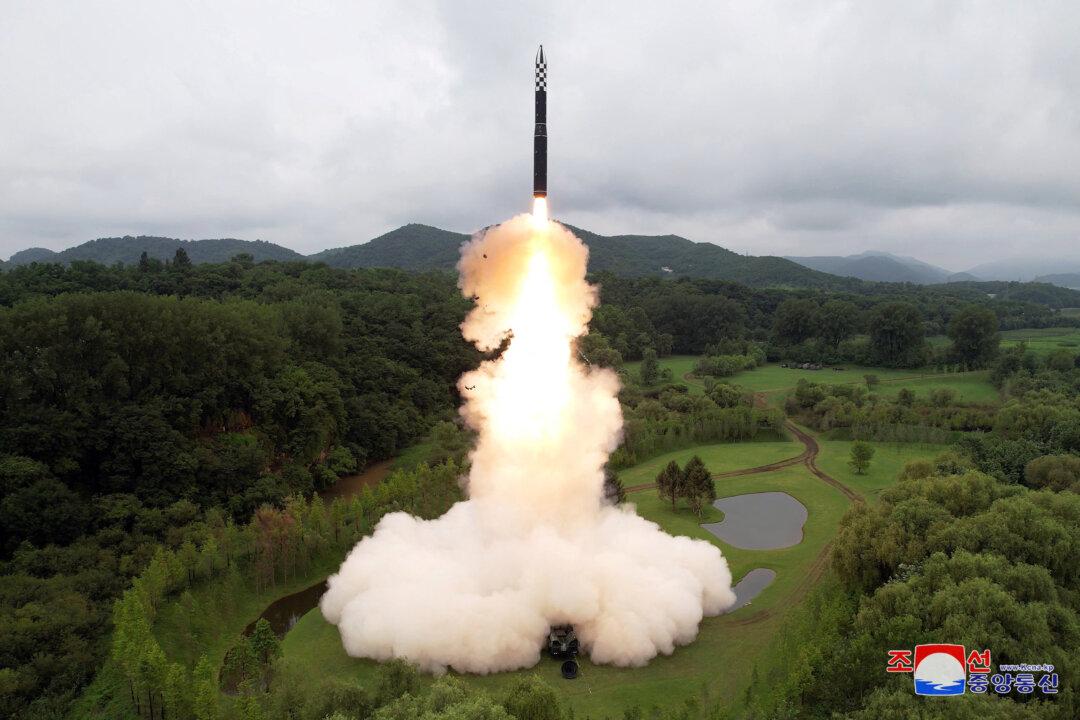South Korean lawmakers have reported that North Korea has positioned a launcher for an intercontinental ballistic missile (ICBM) that it may set off around the time of the Nov. 5 U.S. presidential election.
Citing military intelligence, South Korean parliamentary members briefed reporters after a closed-door hearing with Defense Intelligence Agency officials on Oct. 30.





